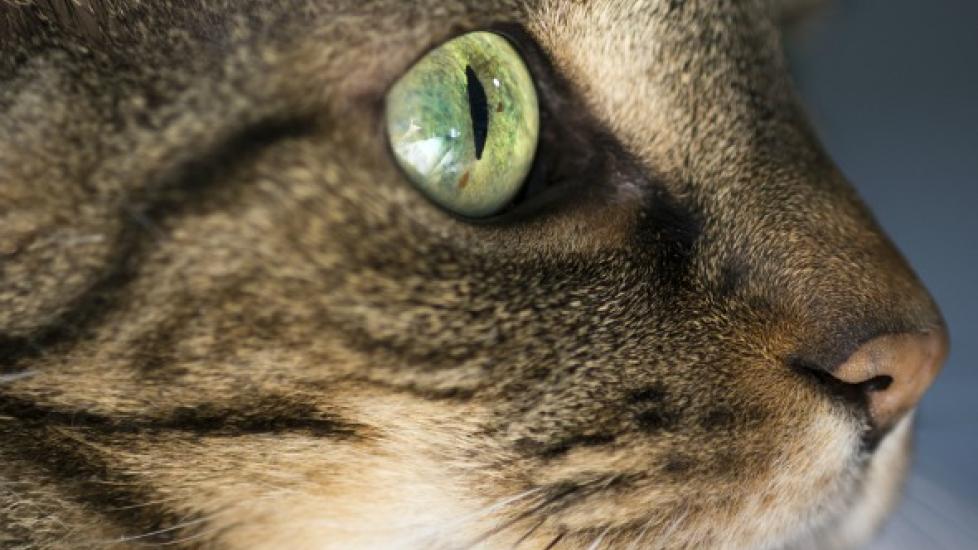Corneal Inflammation (Eosinophilic Keratitis) in Cats
Eosinophilic Keratitis in Cats
Feline eosinophilic keratitis/keratoconjunctivitis (FEK) refers to an immune-mediated inflammation of the cornea -- the external coating of the eye. This medical condition can also be referred to as proliferative keratitis – where keratitis is the clinical term for inflammation of the cornea, and proliferative refers to the rapid and excessive nature of the inflammation of the cornea. Cats that are experiencing this inflammation do not generally experience pain, although there can be some discomfort. The inflammation can occur in one or both eyes.
Symptoms and Types
- Unilateral or bilateral (in one or both eyes)
- Usually little to no pain in the eye despite the inflammation
- Watery to thick mucus discharge from the eye
- Thickening and hyperemia (engorged with blood) of the third eyelid
Causes
The exact causes are unknown, but it is thought that the Feline herpesvirus-1 (FHV-1) may be associated with this inflammation.
Diagnosis
Your veterinarian will want to rule out the following medical conditions prior to diagnosing keratitis:
- Chronic corneal ulceration with secondary corneal vascularization (granulation tissue)
- Feline herpesvirus-1 stromal keratitis, which can appear similar to FEK but causes more severe pain within the eye; feline herpesvirus-1 lacks the proliferative component (i.e., the excessive inflammation and tendency to spread quickly), and corneal ulceration is usually present
- Corneal neoplasia (growth of tissue on cornea), which may be one of two types
- Lymphoma - concurrent conjunctival, and/or uveal (middle of the eye) infiltration is common
- Squamous cell carcinoma - rarely involves the cornea in cats
- Chlamydia psittaci - usually a conjunctival disease only; corneal involvement is rare
- Mycoplasma felis - usually a conjunctival disease only; corneal involvement is rare
Treatment
Treatment for this inflammation is usually done on an outpatient basis. There are a variety of topical medications that your veterinarian may be able prescribe to alleviate the symptoms.
Living and Management
Most cats will respond quickly to effective treatment, though it may take several days to several months for the cat to completely recover from the medical condition.
